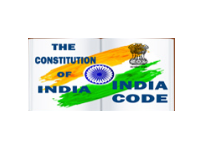Recommendations relating to Empanelment and Placements in the Government of India
10.1 Given the time available, the recommendations of the Group relating to placements in the Central Government cover only positions under the Central Staffing Scheme, at the level of Joint Secretary and above.. The approach followed, which marks some departure from current practice, is to more carefully match the skills and backgrounds of officers to the requirements of particular positions, while preserving a broad spectrum orientation of the services as a whole across a range of sectors, while not confining individual officers to narrowly defined tasks or sectors.
10.2 Domain Assignment
10.2.1 Assigning specific Domains to officers is a key step in accomplishing this objective. Domain competency relates to sufficient background in a certain context of policy making. It differs from general skills of policy/program formulation in that such general skills would relate primarily to knowledge of formal techniques of policy analysis/program formulation and experience of policy/program formulation generally, while “Domain Competence” would involve, in addition, significant subject matter knowledge, gained from work experience, academic study, training, and research [“backgrounds”].
10.2.2 In defining and assigning Domains to officers, two broad alternatives are possible. In the first, the number of Domains may be very few, say 3-4 (e.g. economic, social development, political and security, and culture and media) and officers may qualify for (not more than) one Domain each. In the second, Domains are defined more finely, say 10-12 (e.g. agriculture and rural development, natural resources management, social sectors, culture and information, public finance and financial management, energy, etc.), and officers are assigned to several (say, 3) Domains. In the first alternative, significant differences in the backgrounds and requirements of formal knowledge in different sectors (e.g. public finance versus energy) are not captured. Also, if officers are confined to a single Domain, they may have fewer opportunities to pursue their career interests. Additionally, long-lists generated for particular positions on the basis of officers available in a given Domain may be too large, imposing strain on the process of shortlisting. The second alternative is, accordingly, preferred.[1]
10.2.3 Domain knowledge may also to be distinguished from Specialized Knowledge (in the context of the business of the different AIS) in that the latter relates to more specific policy relevant (as opposed to strictly technical) knowledge within a given Domain, but is also based on relevant backgrounds. In addition, definition of areas of specialized knowledge is more difficult, given that issues are numerous, and typically gain (and lose) salience in policy making rather rapidly.[2] The group, therefore recommends that the following 11 Domains be adopted for assignment to officers for selection to Central Staffing Scheme posts but not earmarked for particular services (e.g. Central Police Organizations, Forest Department positions):
- Agriculture and rural development
- Social sectors (Education, Health, Tribal Welfare, etc.)
- Culture and Information
- Natural Resource Management including Environment (green side).
- Energy and Environment (brown side)
- Communication Systems and Connectivity Infrastructure
- Public Finance and Financial management
- Industry and Trade
- Domestic Affairs and Defense
- Housing and Urban Affairs
- Personnel and General Administration, Governance Reform and Regulatory systems
10.2.4 A matrix giving the relevant departments where each of the above Domains would be broadly relevant by way of acquiring the necessary background and posting, is at Annex 12. A matrix giving an indicative set of academic backgrounds and areas of training, higher study or research that would be relevant for each of the domains is at Annex 13.
10.3 Process of assigning Domains
10.3.1 The assignment of Domains may be part of the empanelment process at JS/AS levels, which would identify officers for posting to the GoI at levels of JS and above. Officers empaneled as Secretaries to GoI may carry their Domain assignments at the AS level empanelment, unless there is a significant change in their qualifications or work experience at the AS level. Officers due for consideration for empanelment may claim (and be assigned) upto three Domains. They may submit a write-up (not more than 1000 words), summarizing their experience, academic background, training courses undergone, research accomplishments, recognitions earned , and significant achievements during their career relevant to these areas. The factual material in these write-ups should reflect the contents of the PAR dossiers. These write-ups may be scrutinized by the Empanelment Committee (see below) which may be assisted by several eminent academics/experts in the respective fields for evaluation of work experience, academic and training courses undergone, research accomplished, etc. The Committee would evaluate the claims of the officers to specific Domains, which may be accepted or denied. No quota system need be imposed in respect of how many empaneled officers may figure in each Domain, as the interests of efficient personnel management would require that the pool of officers who may be considered for particular positions should be sufficiently large.
10.3.2 In the unlikely event that one or more of the listed Domains do not attract sufficient applicants, the Committee may assign these Domains to officers with the relevant backgrounds, exceeding the limit of 3 Domains in their case, if necessary.
10.4 Empanelment
10.4.1 Empanelment is the process of preparing a select-list of officers suitable to be considered for selection to positions under the Central Staffing Scheme at the levels of Joint Secretary, Additional Secretary, and Secretary to the Government of India. Empanelment is not promotion to a particular grade. Promotion to the relevant level, which is earned in the respective cadres, would typically precede empanelment.
10.4.2 Since empanelment is a select list of those who have already been promoted, the criteria for empanelment have to be more stringent than that for promotion. It must also be recognised that empanelment means that an officer is found fit to occupy positions at national policy/program formulation levels. This is indeed an extremely responsible level and only the best available talent should be identified for these positions. Accordingly, there is no alternative but to use merit and demonstrated competence as the basis for empanelment.
10.4.3 The Group also noted that Empanelment is not an assurance of posting under the Central Staffing Scheme. The numbers of empaneled officers need not, therefore, strictly correspond to the number of vacancies likely to arise in a year.
10.4.4 After detailed discussions, the Group makes the following recommendations with regard to Empanelment:
- The output of the empanelment process would be a list of officers found suitable for selection to specific positions under the Central Staffing Scheme, together with their respective Domain assignments. All empanelled officers must be informed of the fact of their empanelment, including Domain assignment.
- Individual batches may be taken up sequentially along with those from previous batches who are due for review. Thus, there would be a fresh batch to be considered each year and some review batches. Cases of such officers who are not empanelled when their batch is taken up for consideration on the first occasion, may be reviewed up to twice more. Before each review, for the Joint Secretary’s level, an officer should have earned two more annual PARs and for higher levels one more annual PAR. .
- A norm of empanelling not more than 50% of the officers of the fresh batch, for the Joint Secretary level, should be adopted. All the non-empanelled officers of the review batches, who secure higher overall scores, in the evaluation, compared to the last empanelled officer of the fresh batch, may also be empanelled. Thus, the percentage of empanelment within a batch may go over 50% after the review stage. The percentage of officers of the fresh batch empanelled at higher levels would be lower, and would need to be worked out on the basis of the likely vacancies, as well as the cushion to allow meaningful selection for particular positions depending upon the skills and background.
- In awarding scores to each candidate, for empanelment to positions of Joint Secretary and above, the empanelment committee may adopt the formulation suggested in Model B (above) for promotions except that the zone of consideration would be the entire fresh batch and review batches. The transition provisions may also be the same as for promotions under Model B.
- The UPSC should be involved in the empanelment process. Interviews for empanelment to the positions of Joint Secretary and above should be introduced.[3]. The interview would validate the claims of skills for the higher position, and would not be a personality test.
- The empanelment committee should be chaired by the Chairman/ member of the UPSC and should include atleast two eminent professionals and other suitable senior officers as may be agreed between the Cabinet Secretary and Chairman of the UPSC.
10.4.5 In making its recommendations that only 50% of the primary batch should be empanelled for the level of Joint Secretary, the Group has taken into account the average number of officers appointed to the different levels in any particular year, the average number of officers available in a particular batch, as well as the average tenure of officers at different level. The Group is of the view that restricting empanelment to only 50% of the batch would help in reducing unhealthy competition for specific positions and would, instead, introduce healthier competition for empanelment itself. The information made available to the Group on the average number of appointments made at each of the levels of Joint Secretary, Additional Secretary and Secretary, in a year, is placed at Annexure 14.
10.5 Combining Domain Assignment and Empanelment
10.5.1 The Group also discussed the merits of combining the domain assignment and the process of evaluating suitability for the higher positions (both being components of the Empanelment) into a single exercise, particularly since the necessary information for each would be contained in the PAR dossiers (including CV). This would help reduce the workload. However, the Group is of the view that domain assignment requires scrutiny by several professionals who would be in a better position to judge demonstrated skills and background of an officer for a particular Domain. On the other hand, the suitability for higher positions may be better judged by fellow practitioners. It is for the above reason that the Group recommends that the domain assignment and determination of suitability for higher positions should be taken up as separate exercises and not as a common exercise.
10.5.2 This raised the question of inter-se sequencing between the two exercises . If domain assignment were to precede determining suitability for higher positions, it would mean that the entire batch would have to be assigned domains , including, those officers not ultimately found suitable. This would mean extra workload in the domain assignment process. Against this, if determining suitability were to be done first, assignment of a domain would not be available for non-empanelled officers.
10.5.3 After considerable discussion, the Group was of the view that it would be better to first accomplish the domain assignment and then take up the process of determining suitability for higher positions. This would have the following advantages:
- It would enable the approval of the ACC to be obtained for the entire output of the empanelment process, i.e. suitability for the higher positions and Domain assigned. This would make it very difficult to post an officer to an area for which where he is not well suited.
- It would provide useful information of an officer’s capabilities to the cadre authorities, who may like to take note of the fact in deciding his placement within the cadre.
- It would give an indication to the officer of the areas in which he should grow for being considered or empanelment in subsequent years.
10.5.4 The domain assigned when the officer was first considered for empanelment may hold at the review stage also, unless the officer has made a specific request, with supporting justification, for reassignment of domain. In case the officer makes such a request, the same may be examined as part of the domain assignment process.
10.6 Selection for specific positions under the central Staffing Scheme
10.6.1 With regard to placements in the Government of India, at the level of Joint Secretary and above, the Group has been guided by the need to ensure that the skills and backgrounds of officers are optimally used. The Group also feels that unhealthy competition for specific positions, on account of which unstructured influences are brought to bear on the selection process, may be avoided through greater transparency in the placement process. The group, therefore, recommends the following procedure for placements:
Step 1: Notification of vacancies likely to arise in the course of the forthcoming year
10.6.2 Each Administrative Ministry would convey to the Department of Personnel & Training (DoPT), 3 months prior to the start of the year, the vacancies at each level likely to arise during the year. Each notice would include a job description of the subjects/themes/functions of the position.
Step 2: Indentifying the relevant Domain Competency for each post
10.6.3 The DoPT would tentatively identify the appropriate Domain competency for each post notified on the basis of the job descriptions. This identification would be confirmed by the CSB.
Step 3:Publication of the list of vacancies
10.6.4 Following Steps 1 & 2, the DoPT would publicize the list of likely vacancies during the year (through its website and other means), together with the job descriptions and identified Domain competencies, for access by all prospective candidate officers. The candidate (empaneled) officers may, in turn, indicate by e-mail to the website itself, or by other means, their interest in being considered for (upto 3) particular positions. (A software would have to be developed for consolidating all such responses, and confirming to each officer the registering of their expressions of interest, as well as restricting access for expressions of interest through passwords).
Step 4: Generation of Long-Lists
10.6.5 For each post, a long-list would be generated by the Department of Personnel listing all the officers who are still available from among those who have indicated their interest in the post and with the requisite Domain competency. In case sufficient officers who have indicated their interest in the post are no longer available, or an insufficient number had expressed interest in the first place, the DoPT may generate/add to the long-list other available officers with the requisite Domain competency. This long-list, together with the Performance Appraisal dossiers of the officers would be forwarded to the CSB.
Step 5: Generation of Short-Lists
10.6.6 The long-list for each post would be pruned by the CSB by matching the requirements for the post as revealed in the respective job descriptions and the specific background of each officer, and considering their overall suitability for the particular position. The output would be a short-list for each post.
Step 6: Final Selection for the post
10.6.7 The CSB would transmit this short-list to the ACC for final selection to the post.
[1] In the view of the group, the second alternative is also more consistent with the approach set forth at the beginning of this chapter.
[2] However, some examples of specialized knowledge within particular Domains are: (i) Agriculture: IPRs on plant varieties; (ii) Social sectors: Population and Family Welfare; (iii) Energy and Environment (brown side): Climate Change; (iv) Public Finance and Financial Management: Monetary Policy, etc.
[3] The Group considered three options with regard to the process of empanelment. One was to involve the UPSC and introduce a process of interview in which the interview committee could make an assessment of the performance claims made by the candidate officer in his annual performance appraisal reports as also his claims to competence for the higher position. The second was to involve the UPSC but not have an interview process but ask a committee to make an evaluation from the performance appraisal dossier (including CV) made available to them. The third was to use the present screening committee of Secretaries itself. Keeping in view that there can be no compromise on quality at such responsible positions, the Group was of the view that stringent selection procedures need to be in place and hence the recommendation that the UPSC be involved along with an interview process. The recommendations of the UPSC would not only be with regard to the suitability for empanelment but also the appropriate domains to be assigned. The recommendations should be submitted to the Cabinet Secretary for obtaining the approval of the ACC.






 कार्मिक एवं प्रशिक्षण विभागDepartment of
कार्मिक एवं प्रशिक्षण विभागDepartment of 













